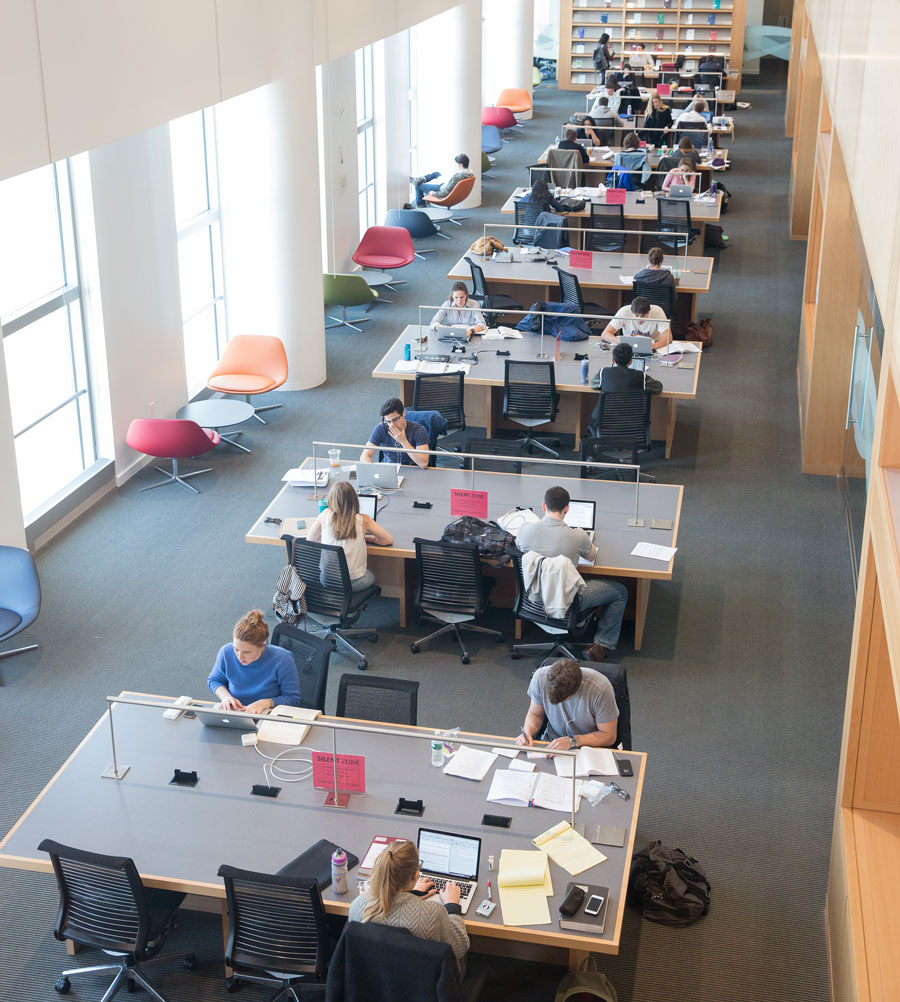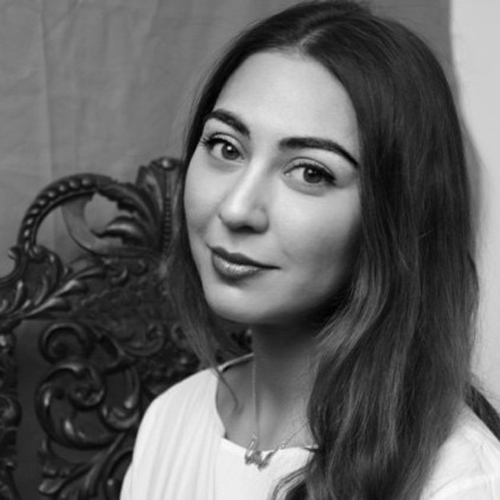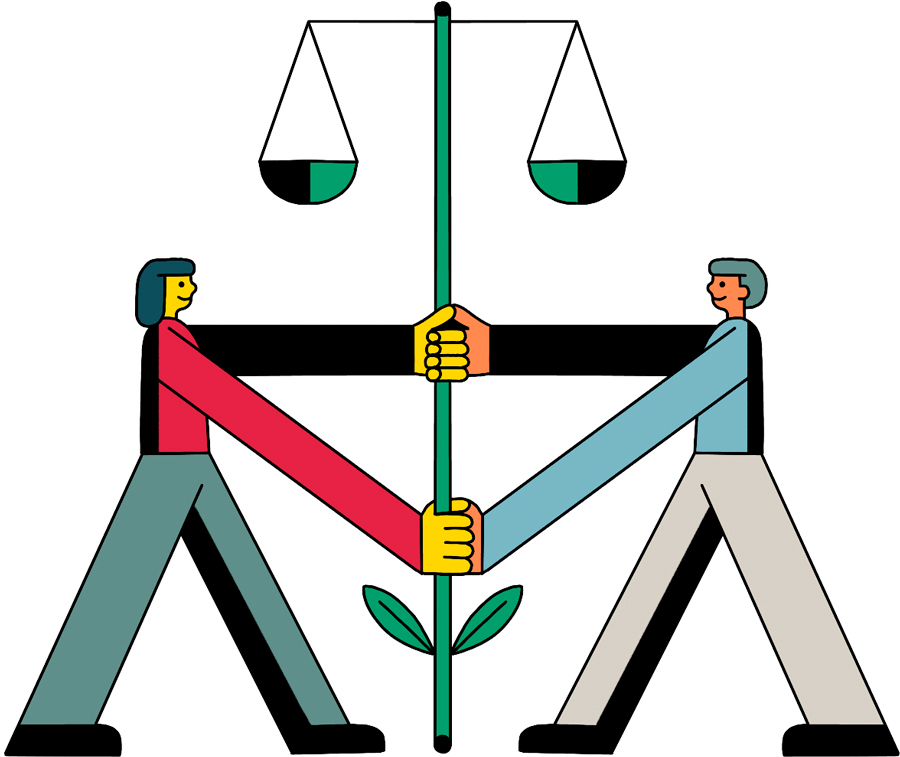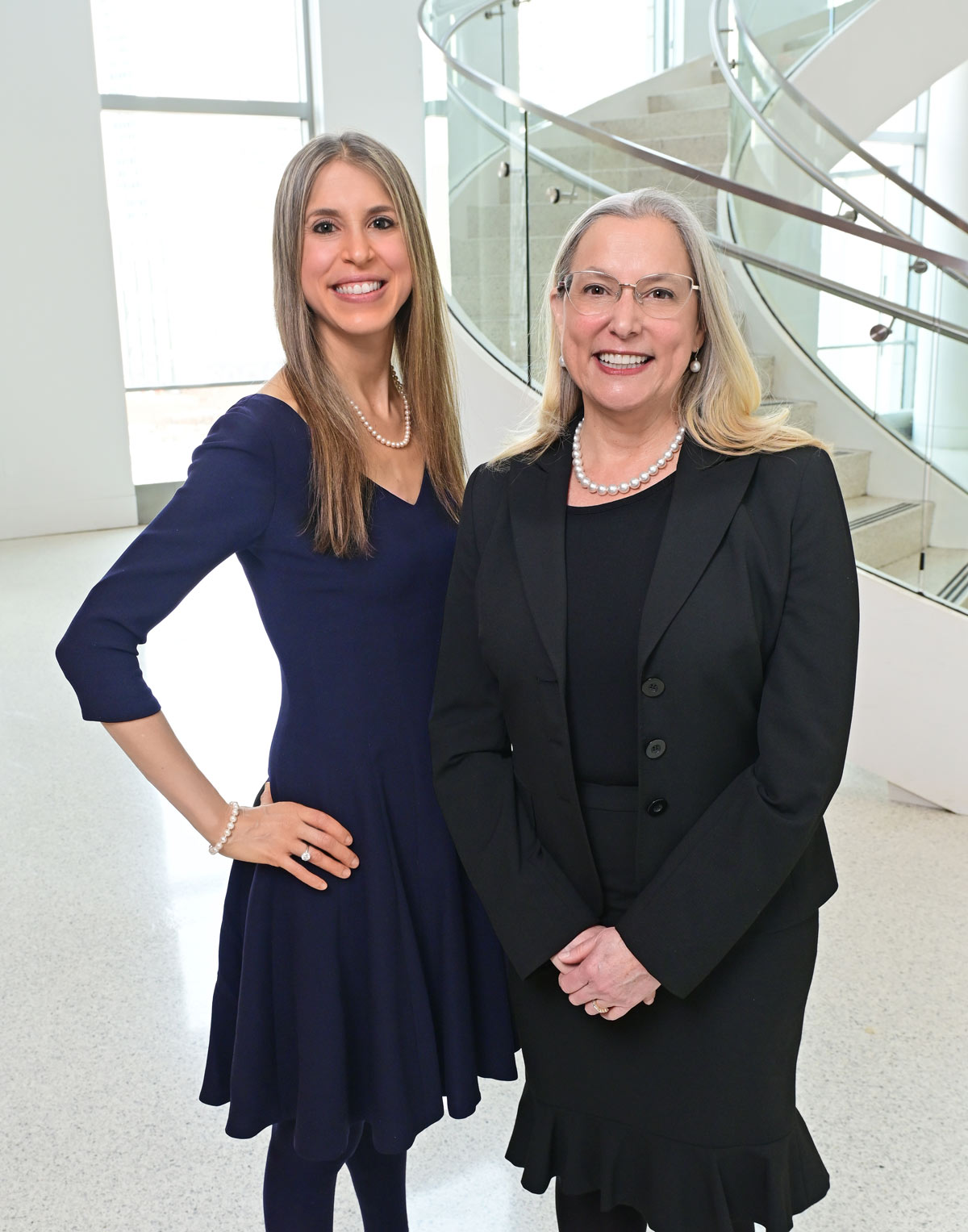Educating Students for the Law— and for Life

With these goals in mind, Professor Sugin spearheaded the creation of Fordham’s Office of Professionalism in 2017, shortly after becoming associate dean, putting the Law School at the forefront of a movement to expand the scope of professionalism education. Her goal: to fill in the gaps in traditional legal education and train students in historically neglected but essential capabilities. The Professionalism Office’s flagship programs focus on peer mentorship, student leadership, and community building.
A New Kind of Law School Culture
The second category includes a range of self-reflection and self-care tools, including how to foster a growth mindset and develop empathy; effective communication; cultural competency; self-awareness; giving and receiving feedback; and maintaining self-care. Sugin considers these skills to be the backbone of the program because they are critical for success and satisfaction in law school and as a working lawyer. “I’d always felt personally connected to many of my students, but I’d never really investigated what was in their hearts,” says Sugin. “Many were suffering from stress, anxiety, fear, disappointment, and anger. I realized that if we were going to send our students out into this demanding work world, we needed to help them develop more tools to deal with it.”
Stress Comes with the Territory
Until 2016. That year, a paper in the Journal of Legal Education, “Suffering in Silence: The Survey of Law Student Well-Being and the Reluctance of Law Students to Seek Help for Substance Use and Mental Health Concerns,” captured the legal community’s attention. Based on an in-depth survey of 3,300 students at 15 law schools around the country, the first-of-its-kind report revealed widespread binge drinking, drug use, and mental health challenges among law students. These problems are rampant among college and postgraduate students in general, but law students stand out. The survey found, for instance, that binge drinking and the use of marijuana, cocaine, and ecstasy were more prevalent among law students than among graduate students in other fields.

In 2017, the same year Sugin became associate dean, the American Bar Association published “The Path to Lawyer Well-Being: Practical Recommendations for Positive Change,” a call to all members of the legal community—including law school leaders—to turn their attention to emotional health. As Confino sees it, law schools must do a better job of supporting their students. “The authors pointed out that stress and mental health issues extend beyond humanitarian concerns,” she says. “It’s impossible to do your best work if you’re burnt-out or suffering from unaddressed mental health challenges. This means lawyers and law students have a professional, as well as a personal, responsibility to take care of themselves.”
Fostering Connections and Leadership

Professionalism Fellow
Mentors are required to take a for-credit seminar, Peer Mentoring & Leadership, which gives them the tools and training they need to support their mentees. “The class focuses on skills inherent to forming positive interpersonal relationships, like empathetic listening and overcoming failure—leadership skills intertwined with wellness,” says Confino, who co-teaches the course. Mentoring also develops students’ problem-solving skills and bolsters confidence and self-awareness, all essential for professional success. “The Peer Mentorship Program,” says Confino, “is one of the most effective things we’ve done in terms of enhancing student well-being.”
An important aspect of the Peer Mentorship Program is its collaboration with the student affinity groups. Mentors associated with those groups counsel mentees from within that group as well as from without, the goal being to support mentoring within affinity groups as well as cross-cultural interactions. This results in the creation of small, diverse cohorts that forge connections and a sense of belonging for students.

That’s in large part due to the efforts of Sugin and Confino—the latter of whom worked on a 2018 ABA survey of law schools to find out what steps, in the wake of the bleak findings about law students’ mental health, law schools were taking to prioritize student well-being.
“We discovered that most schools had considerable work to do,” says Confino, who published her findings in the Journal of Legal Education. “Fortunately, not long after we completed that survey, I had the opportunity to help put best practices into place when I joined Fordham. I couldn’t have dreamed up more fulfilling work than what I’m doing right now.”

Making Law School Feel Welcoming
Last semester, from October 4 through 15, during Fordham Law’s second annual wellness week, there were workshops on mindfulness, coping with anxiety, and nutrition, among others. “When you’re working, there’s this incredible pressure to put in billable hours, so you need to know how to take care of yourself before you get in that situation,” says Dianna Lam ’22, who helped develop some of the wellness curriculum. For Lam herself, well-being means building in downtime, even during the crush of exams. “I try to make sure I take a break to read a book or cook. It helps me recharge.”
To encourage more law schools to adopt robust wellness offerings, Confino, in collaboration with Yair Listokin, a professor at Yale Law School, and Laurie Santos, Ph.D., a psychology professor at Yale University, is currently developing a new class on well-being, called Foundations for Flourishing. Designed for incoming law students, it will be piloted at Fordham and Yale in the fall of 2022. The team will also assess the effectiveness of the course. “If we can show it helps students, we’re hoping it will inspire other law schools to offer the class as well,” says Confino.
Collaboration Across the Board
Like the upper-level Peer Mentorship Program, the Professionalism Fellows Program is having a major impact, not least because student leaders are supported by the Law School. Sugin and Confino collaborate closely with students to ensure that the professionalism curriculum meets their needs.“When I was a 1L I often felt alone in my struggles,” says Kimya Zahedi ’22, a Professionalism Fellow. “Now, first-year students have an opportunity to voice their concerns and issues to an upper-year student who has a better sense of what they are going through. It is our job to liaise with the administration and advocate to get students the resources they need to be successful and healthy. In this position, I’ve seen how essential peer support is. Students have opened up to me in ways I didn’t expect and I feel privileged to be part of the experience.”
Sugin, who stepped down as associate dean in May 2021 and received the Dean’s Medal of Recognition for her work, is now back to full-time teaching. She is also writing a book about how to improve the law school experience. “We can’t succeed with our academic mission if we continue to ignore half the capabilities that students need,” says Sugin. “Our hope is that professionalism, as we understand it, will become an indispensable element of all legal education.”